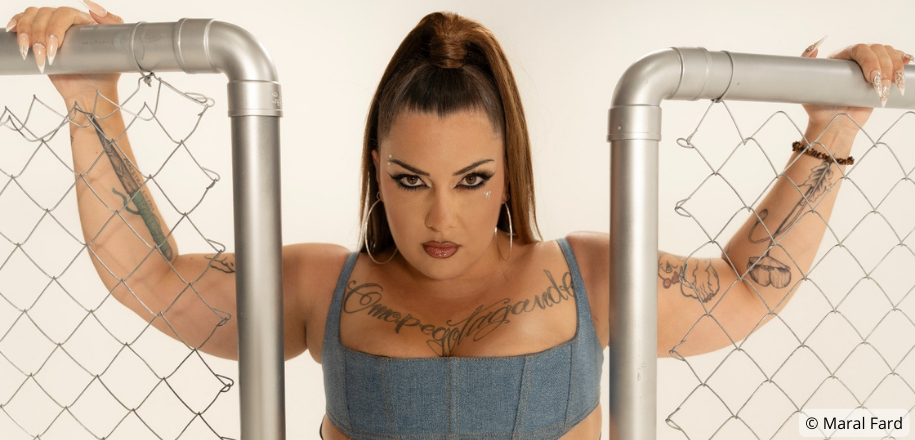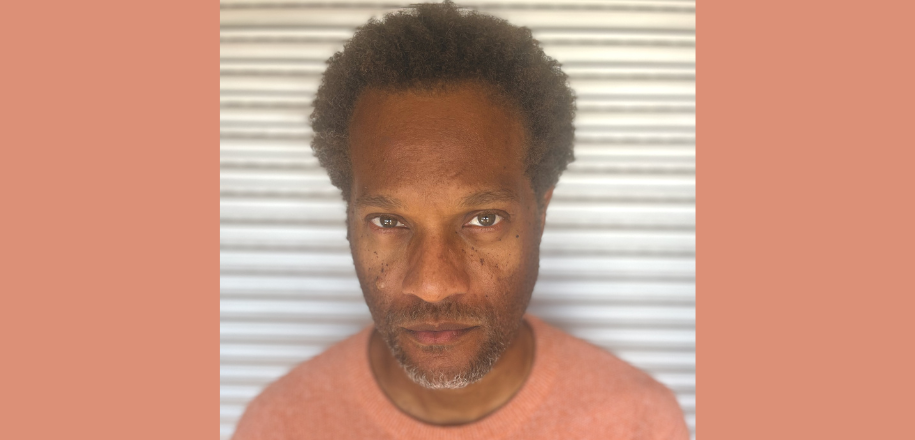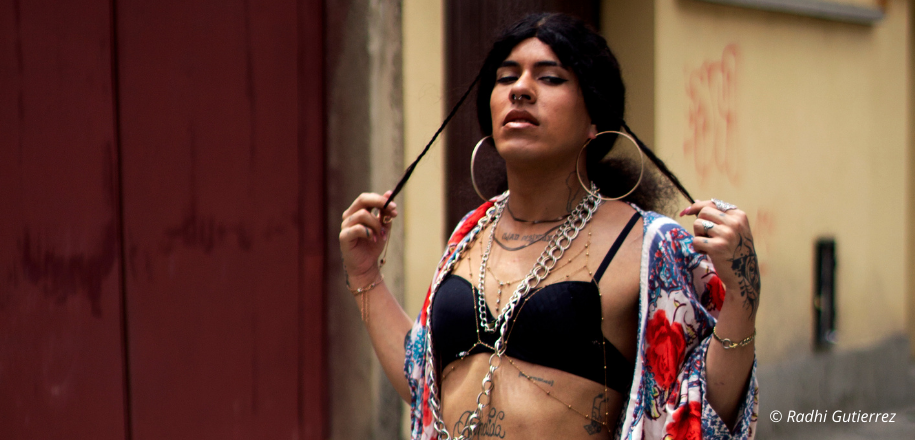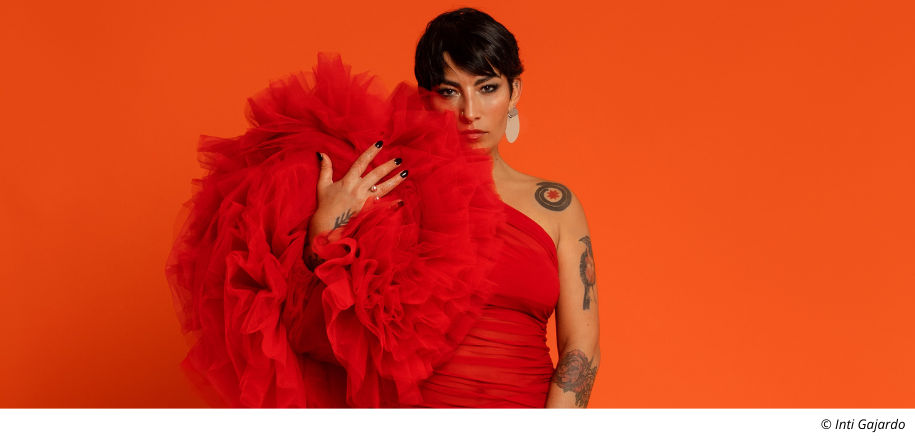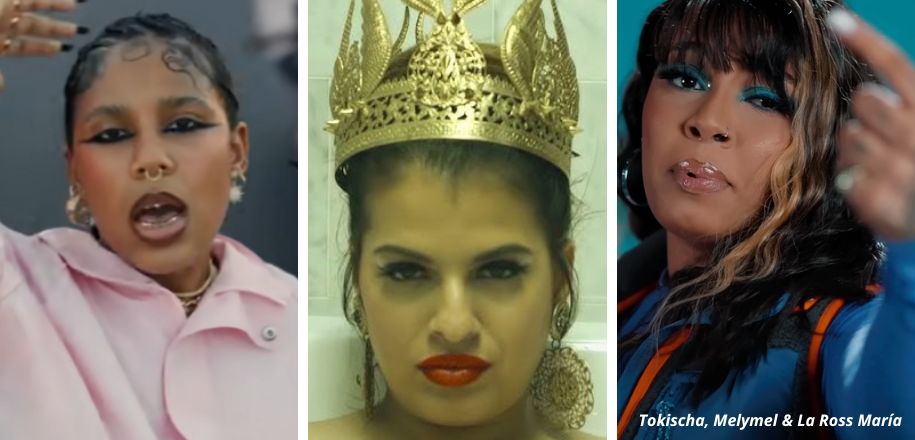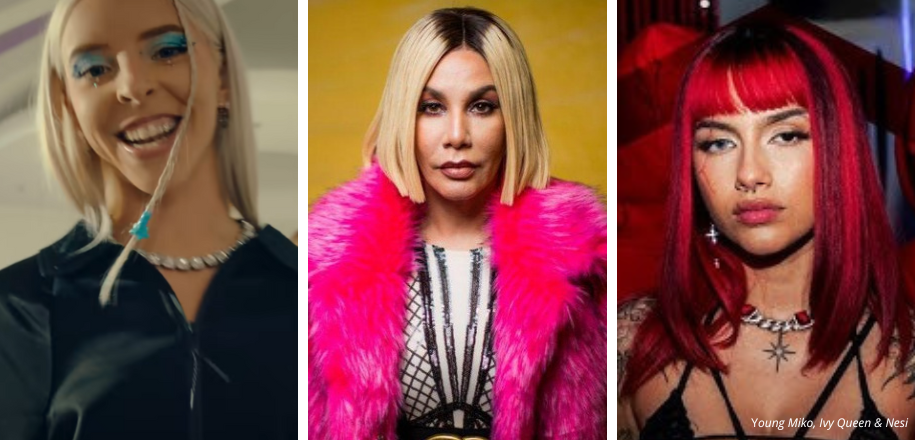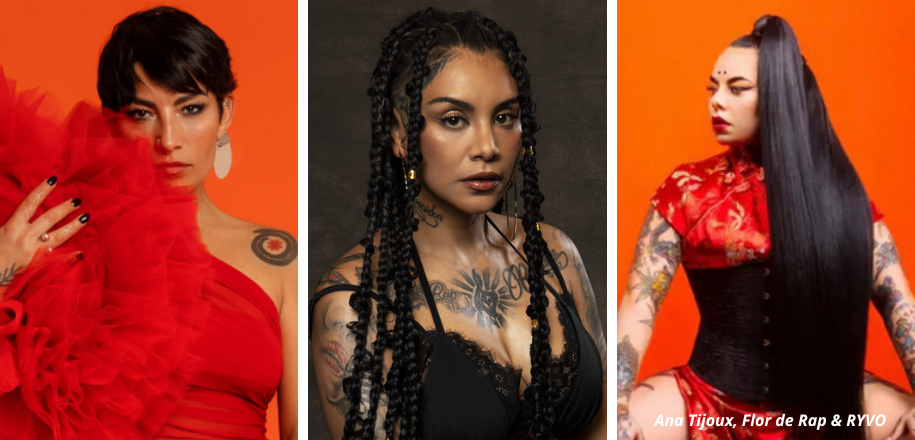A singer, rapper, stylist, designer, dancer and choreographer, Lapili hails from Ciudad Real, a Spanish town located about 120 miles south of Madrid in the autonomous community of Castilla-La Mancha. In her tracks, which blend rap, kuduro, afrohouse, amapiano and reggaeton, she explores the themes of body diversity, fat shaming and self-acceptance. She told us about her journey, the importance of dance in her music and the obstacles she faces as a woman and an independent artist.
How and when did you discover hip hop?
I discovered hip hop when I was very young, at the age of three or four, thanks to one of my uncles who loved music. He was a skateboarder and was in contact with graffiti artists. He mainly introduced me to American hip hop. That’s what I listened to most when I was little.
You’re a singer, rapper, stylist, designer, dancer and choreographer. How do these different activities complement each other?
I consider myself more of a multidisciplinary artist. I like to do everything, and in the end, I think music allows me to do that. Because with music, I can combine everything. I can get involved in creation, musical composition, the aesthetic part, choreography, everything to do with art direction and styling. I just love it.
Are you self-taught or did you have any musical training or instruction?
I was trained in textile art and fashion, but I didn’t have any musical training or education. It’s more self-taught and a bit intuitive. Now I have the opportunity to work with many wonderful producers and musicians, and I’m learning a lot.
I’ve also started training my voice, with a vocal coach and a singing teacher, and I love learning. I hope never to stop learning.
What are the main advantages and drawbacks you see in being a multidisciplinary artist?
The advantages are that you can do practically anything. You have this ability to see the whole picture. Whatever you’re going to do, you can visualize it. But sometimes it’s very important to know how to delegate: I think it’s a problem to want to cover everything, because you can’t control everything. We’re human beings.
I also think that, at the end of the day, the most wonderful thing about this job is having a team that supports you, that’s there for you, that loves your project as much as you do. And it’s important for everyone to have their own workspace.
When did you create the character of Lapili and how would you define her?
Lapili isn’t just any character, it’s me as I am. Obviously, I’m not the same person in my armchair at home as I am on stage. But I’ve always been myself. That has its advantages, in that there’s nothing else but me.
But it also has its drawbacks, especially the fact that I’m fully exposed all the time. And sometimes there are a lot of malicious people out there who can do you harm. But I know how to protect myself.
Your music incorporates elements of hip hop, dancehall and afrobeat. How would you describe it to someone listening to it for the first time?
It’s a fusion of rhythms that includes hip hop, dance, afro, kuduro, afrohouse, amapiano, reggaeton… It’s what I’ve loved and listened to since I was a child.
It’s also very important to me that people can dance to my music. Because music, especially through dance, is what I feel most connected to, and has saved me on many occasions.
You co-directed the video for the song “Gorda”, which you released in October. How did you work on the concept and aesthetics of this video?
Ever since I was little, I’ve always wanted to pay tribute to my favorite music video, which is “Soldier” by Destiny’s Child. That’s where the idea came from. I’ve always loved that video and felt it was the right time to do this tribute.
The themes of body diversity and self-acceptance are central to your songs. Do you think rap can be an effective tool for educating people about these issues?
Not just rap. All music and all communication tools, i.e. all the media, are tools for communicating what you want. I think the world has already gone through a period where there was a lot of repression, where a lot of limits were set, where things were darker.
I think that as humanity, we need to evolve towards this true globalization, towards integration, to have more empathy and respect for each other. I don’t really know how to improve these qualities that, in my opinion, define being human.
Would you describe yourself as a feminist artist? If so, how would you define your own feminism?
I define myself as a feminist. It’s obvious that in everything I do, feminism will be present because I can’t live without it. Feminism is about equality and it’s very important that we keep in mind that we’re all human beings and inhabitants of the same planet. That’s why I think everyone should be a feminist.
Which song(s) are you most proud of to date?
It’s very difficult for me to choose. There are also a lot of new songs that haven’t been released yet. But I can say that “Piligrossa” is a song I love. Being an independent artist is very difficult: although many doors are closing, many other wonderful doors are opening at the same time. But you have to be constantly on the lookout, and sometimes you feel like a fish swimming against the current.
So when I need help, “Piligrossa” reminds me why I’m doing this, why I’m here. It’s very important because it gives me strength.
As a female artist, what are the main obstacles you face?
The main obstacles I encounter most of the time have to do with my body and the fact that I’m a woman. Like trying to discredit my work. Today, I want to focus more on the good than the bad.
But I think the biggest obstacles come from there, at least in Spain. It’s like people don’t really understand the genres of music I make. They’re genres that haven’t really been explored here yet. And it’s also complicated for them to understand that I can vary so much from one genre to another.
What are your upcoming projects?
I don’t want to say too much about my upcoming projects because they’re still being finalized at the moment. But I can say that there are some very interesting things coming up.
I also hope to be able to do more things in France. I’ve been to Paris a lot, and I hope I’ll be back soon to play, do DJ sets and dance together. Kisses and many thanks!
Find Lapili on Instagram, TikTok, YouTube and her website.
Photo © Maral Fard

